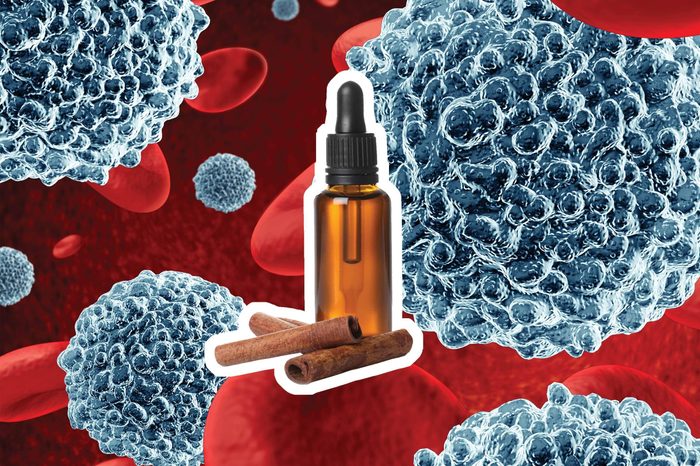
Boost immunity
Cinnamon is a potential immune-boosting food you could get excited about, according to Anca Tchelebi-Moscatello, MD, of Park Avenue Medical Spa, in Armonk, New York. “Cinnamon is loaded with antioxidant polyphenols and proanthocyanidins and also has nice amounts manganese, calcium, fiber, and iron,” explains Dr. Tchelebi-Moscatello. What’s more, the cinnamyl acetate, cinnamyl alcohol, and cinnamaldehyde found in cinnamon oil may have antiviral, antibacterial, and anti-fungal properties.
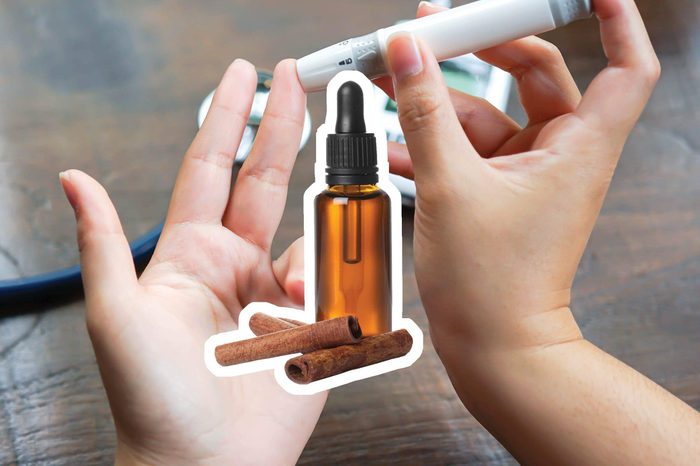
Stabilize blood sugar
A review of studies published in 2016 in the Journal of the Academy of Nutrition and Dietetics suggests that consuming cinnamon may play a modest role in helping improve hemoglobin A1C levels in people with type 2 diabetes. The studies were conducted with cinnamon supplements, but Dr. Tchelebi-Moscatello says cinnamon oil may have the same sugar-stabilizing benefits as the ground bark. (Don’t miss these other science-backed strategies to help prevent or possibly reverse type 2 diabetes.)
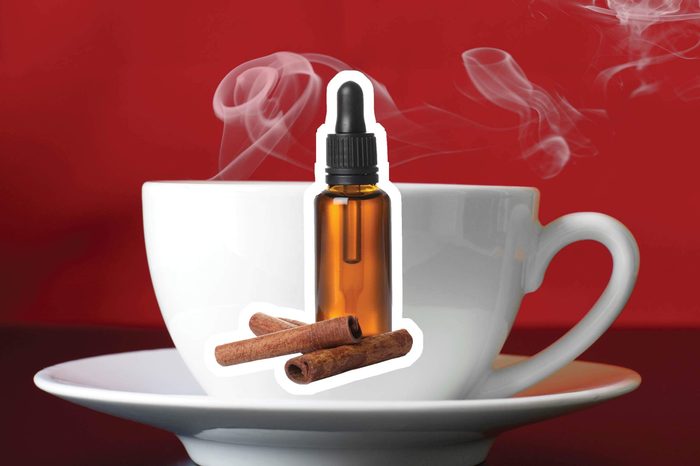
Curb cravings
“I would suggest adding one to two drops of cinnamon oil to a cup of warm water with a little honey in the late afternoon or early evening to help fight those late-night food cravings,” says Dr. Tchelebi-Moscatello. Another strategy is adding a few drops of oil on a cotton ball and slowly inhaling it before a meal. This may help prevent you from overeating.
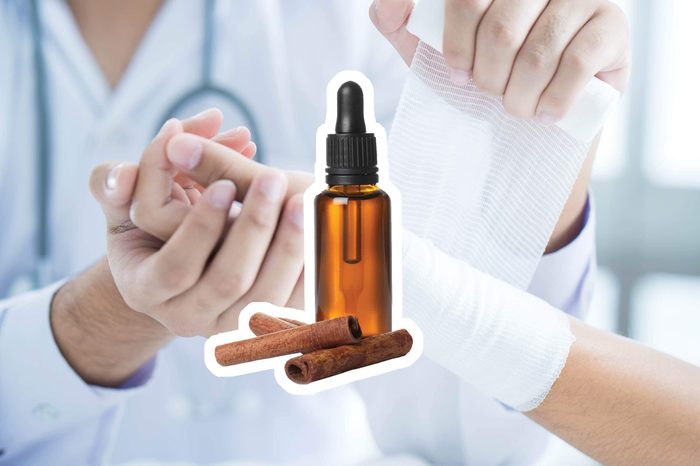
Speed wound healing—provided you swallow it
“There is some potential for cinnamon to help wounds, but it can also be harmful to skin,” says Christopher Hollingsworth, MD, of NYC Surgical Associates in New York. He suggests taking cinnamon oil supplements orally to hasten wound healing instead of applying it to skin directly, as cinnamon oil contains irritating compounds. Check out these other tips for faster healing—with no scarring.

Improve your digestion
If you find yourself indulging in any foods that mess up digestion, cinnamon oil may help set you right. “Put a few drops of cinnamon oil in hot water or tea, or put cinnamon oil in food to get it into your system,” says Dr. Hollingsworth. “It works as an antioxidant, an antibacterial, and as an anti-inflammatory.”
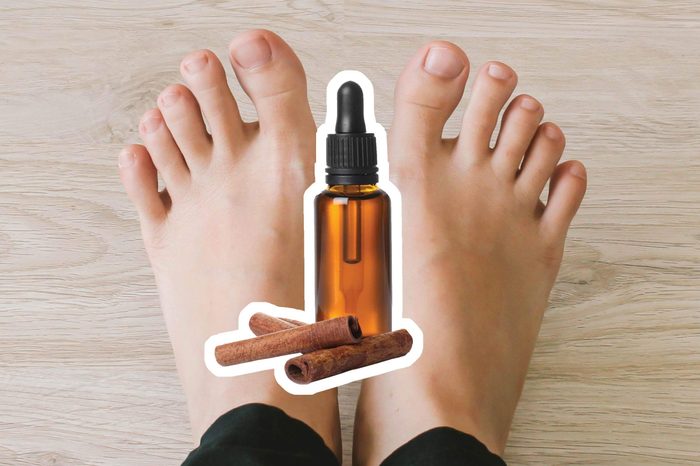
Treat fungal infections
“Cinnamon oil could be used topically as treatment for thrush, fungal skin infections, or fungal infections of toenails,” says Dr. Hollingsworth. However, he stresses that cinnamon oil can irritate skin, so it’s best not to use it on open wounds or especially sensitive areas.

Speed up your metabolism
In a study published in 2017 in Metabolism Clinical and Experimental, researchers found that cinnamaldehyde, the essential oil that gives cinnamon its flavor, induced fat cells to start burning energy through a process called thermogenesis. The study was conducted in laboratory-grown cells, which doesn’t necessarily mean that the results in the human body would be the same. However, “the research suggests it’s a good supplement to use when fasting or running a caloric deficit to augment weight loss,” explains Dr. Hollingsworth. “I would suggest a 16-hour fast while taking cinnamon tea.”
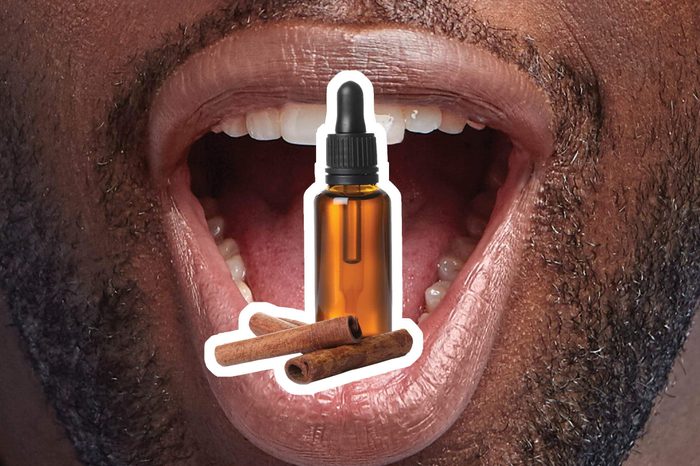
Ward off gum disease and cavities
If you’re looking to prevent tooth decay, make cinnamon oil your new best friend, says Victoria Veytsman, DDS, a general and cosmetic dentist in New York. “Cinnamon oil is antibacterial and anti-fungal,” she says. “This suggests that the oil can help prevent cavities and gum disease when used as an adjunct to traditional oral care.” Dr. Veytsman believes adding a drop to your toothbrush or mixed into your normal drop of toothpaste is enough to reap the benefits. But cinnamon isn’t the only spice with secret health benefits. Check out these healthy home remedies hiding in your spice rack.
